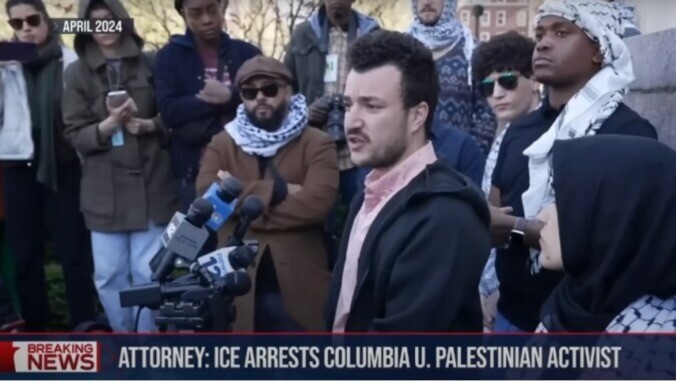Federal Judge Rules Mahmoud Khalil’s Detention as ‘Unconstitutional’
This is the first judge to rule on the constitutionality of President Trump's pursuit of the deportation of any non-citizen deemed a peril to U.S. foreign policy.
ImmigrationPolitics
This week, a judge ruled that the Trump Administration’s effort to deport Mahmoud Khalil—the Columbia University graduate who organized student encampments to protest Israel’s genocide in Gaza—is unconstitutional.
On Wednesday, Judge Michael Farbiarz issued an order stating that the state’s grounds for Khalil’s arrest—that his anti-genocide stance is a potential threat to the nation’s foreign policy—could give way to carte blanche detentions and deportations. As the Guardian noted, Farbiarz’s ruling is the first one by a federal judge regarding the constitutionality of the president’s pursuit of deportation of any non-citizen deemed a peril to U.S. foreign policy. However, Farbiarz has yet to grant Khalil’s release as he claims his attorneys have yet to address another charge by the government: that Khalil didn’t include his personal affiliations to some organizations—namely, a United Nations agency that works with Palestinian refugees and a Columbia protest group. In a statement to the Guardian, Khalil’s attorneys said they would give Farbiarz the additional argument as quickly as possible. Until then, Khalil will remain in detention at the Central Louisiana ICE Processing Center in Jena, Louisiana.
“Every day Mahmoud spends languishing in an ICE detention facility in Jena, Louisiana, is an affront to justice, and we won’t stop working until he is free,” the lawyers said.
-

-

-

-

-

-

-

-

-

-

-

-

-

-

-

-

-

-

-

-

-

-

-

-

-

-

-

-

-

-

-

-

-

-

-

-

-

-

-

-








































